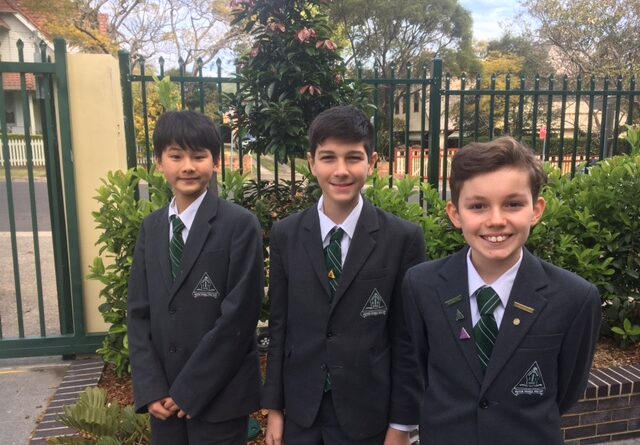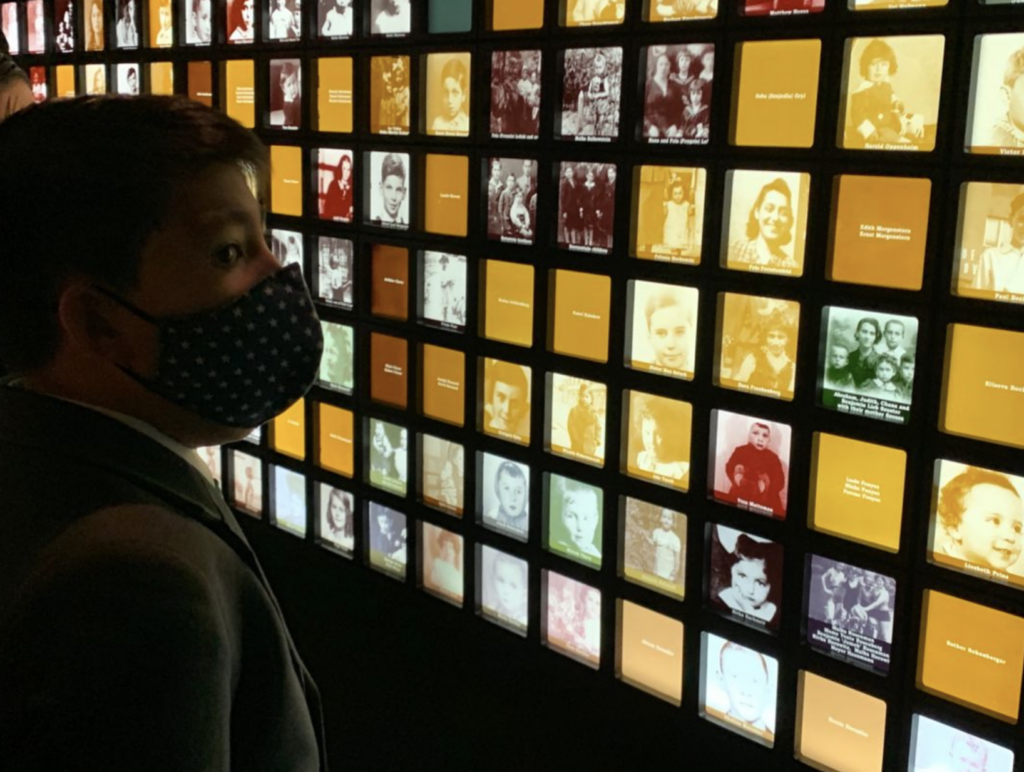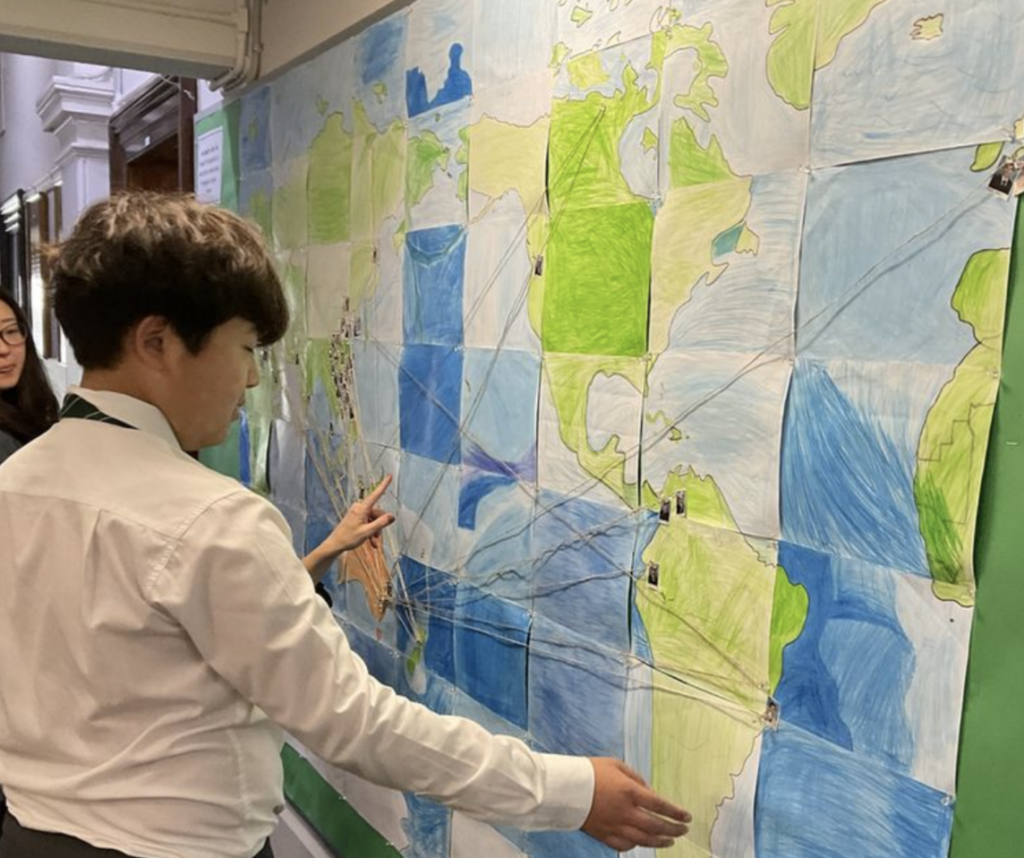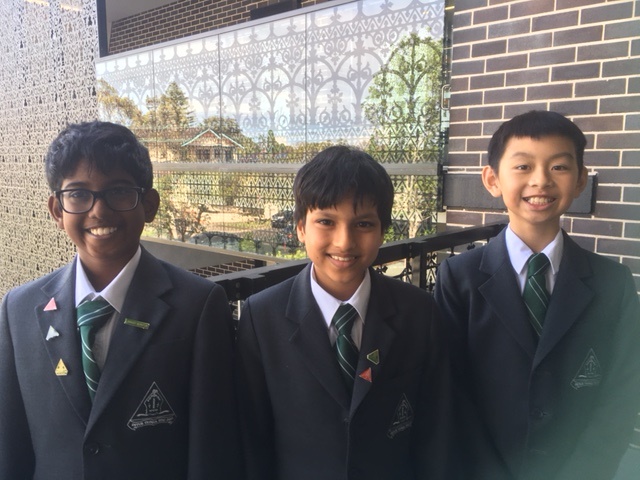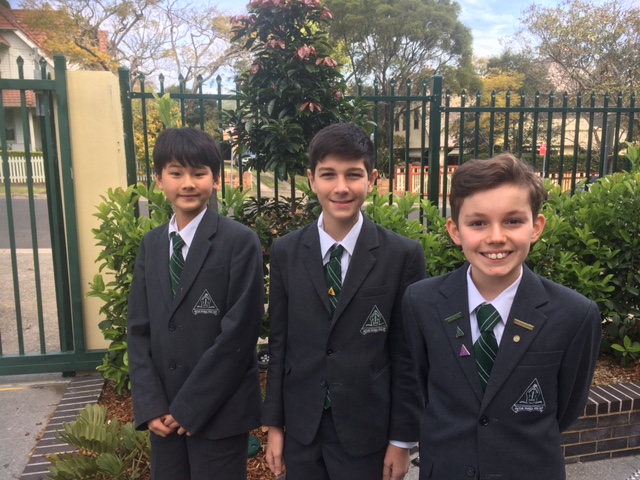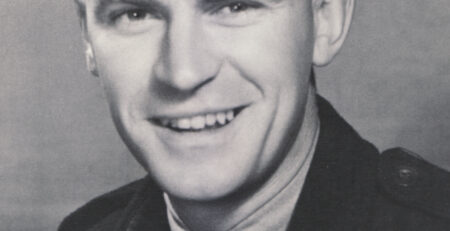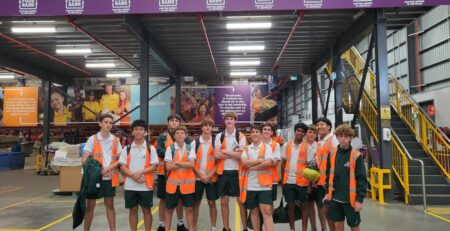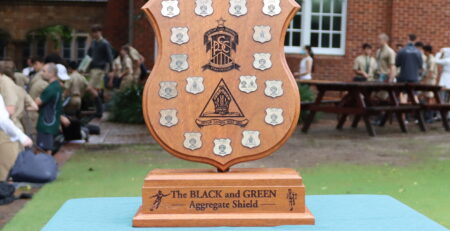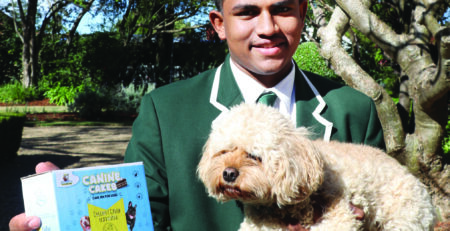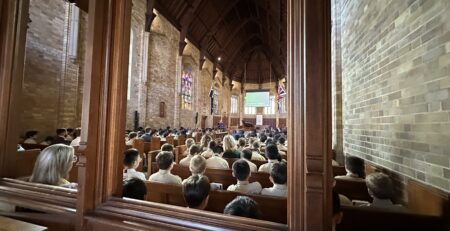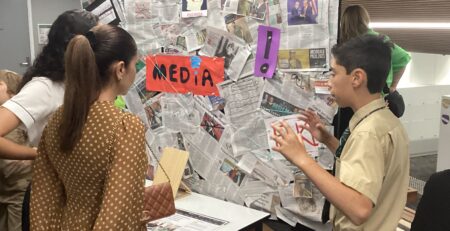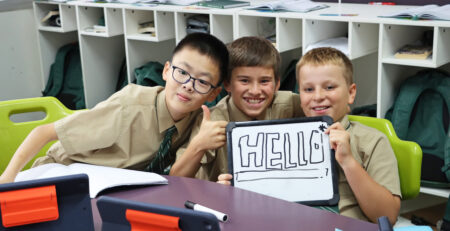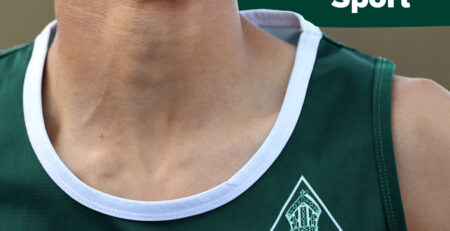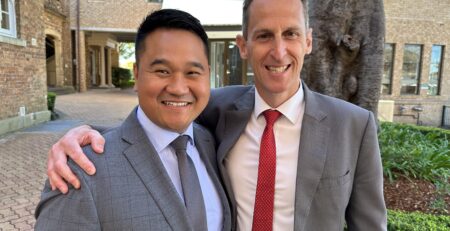Young men of action
PYP students are primed to change their world
Think globally and take action – they are among the key goals in shaping primary schoolers participating in the International Baccalaureate (IB) Primary Years Programme (PYP) to grow into empathetic and empowered citizens of the world.
Year 5 students at Trinity’s Preparatory School at Strathfield are mounting campaigns to tackle big issues of their choosing including youth suicide, child abuse and – perhaps surprisingly in a boys’ school – gender inequality.
Year 6 students are engrossed in an IB PYP unit of inquiry called Sharing Our Planet in which they speak first-hand with people such as Holocaust survivors and migrants, including one of their own teachers.
Study in itself is not enough; doing something useful is at the core of the Primary Years Programme, dedicated to developing men of action who can bring about change and fight for social justice.
“The whole goal is to develop globally-minded citizens, and we want the boys to take action,” explains the Preparatory School Head of Curriculum and STEAM teacher Fiona Evans.
“The action doesn’t have to be the traditional things like raising money; it can be through participation, advocacy and lifestyle choices.
“It’s not about a quick fix; it’s playing the long game.
“This fits our learner profile of being open-minded, which is one of the ten International Baccalaureate profiles.
“A lot of the work we do is to tackle issues before they happen, teaching students to be tolerant and to think beyond their own sheltered upbringing.”
Year 5 students are studying the work of social entrepreneurs, including Trinity Old Boy, Dr Daniel Nour, whose Street Side Medics charity led to his Young Australian of the Year award.
“They are working in groups of six or seven, firstly identifying needs in society and then trying to dream up ways of helping to solve them,” said teacher Catherine Devitt.
“They will ultimately draft a company mission statement and submit their work to a national competition called First Pitch.
“Undertaking these projects help develop many skills, including in creative thinking, research, social skills, communications and self-management.”
Marcus Du (5Sc), whose group is looking at gender inequality, said: “At first I thought about posters telling people about it, but then I thought it was just a message about education and it wasn’t really doing anything.
“Then I thought about printing the poster message on T-shirts, selling them and donating money to organisations that already exist for gender equality.”
Panav Sinha (5Ar) is part of a group examining children’s rights, particularly the right to protection from abuse.
“We created a website with areas for donations, help requests, comments and a survey,” he said. “The aim is to make children feel happier and more protected.”
Jayshan Shanmugaratnam (5Ar) and his cohort want to make a difference in suicide prevention, mainly in teenage males.
“We thought about creating a website, but on deeper reflection that was not enough,” he said.
“You need to talk to them. So we are now looking at ways of helping existing organisations, and making help more accessible. Sometimes it’s hard to select solutions that would work best. For example, you can’t really give all homeless people homes.”
Teacher Mark Gannon said the process helped students identify how they could best help to fight a problem.
“We might not have the resources to pursue an idea but someone with more money might be able to, and your ideas can be a launch pad,” he said.
“The boys are learning how they can help in the community; how they might be able to recognise a need and do something about it.”
Year 6 boys are exposed as much as possible to primary sources, hearing first-hand, personal histories, including one from a teacher who described the racism she confronted in Australia after migrating from Hong Kong.
The students were “absolutely struck dumb”, one teacher said.
Adam Jeroncic (6S) said her story shocked him.
“People in Australia were rude and disrespectful towards her. Racist comments made her start second-guessing if she should go to another country,” he said.
One quote from his studies stuck with him: “If we cut our hands, we all have the same blood. There is only one race: the human race.”
Jaydon Chang (6M), whose family migrated from Hong Kong in the 1980s, said they felt “very comfortable” but ten years later it was a different story for newcomers.
“People didn’t know much about Asia then. Some prime ministers are more comfortable with different cultures than others.
“You can’t offer a visa to everybody,” he said as he grappled with ideas about priority lists of people with desired professions, and those fleeing war and persecution.
All students are encouraged to develop a responsibility from what they are learning. His is “to support people who come in (to Australia), be aware of how they might be thinking, and understand how migration works”.
Jackson Galetsis (6G) said his grandfather experienced “zero racism” when he came to Australia from Crete.
He said his studies of sharing the planet had changed his perspective.
“I think I started off knowing nothing and now I know a lot. Now I can ask more questions about my own family.
“Some people flee from war and go through so much just to get to a new country. People in detention centres say they can be worse than prison because in prison at least you know when you are going to get out.”
His responsibility is to “understand the feelings of people who have gone through a traumatic experience, like a Holocaust survivor”.
Mr Gannon said: “We also look at the power of cultural influences, such as parents, radio and television; good and bad influences.
“We ask, ‘Why do I say the things I say, why do I do the things I do, and why do I like the things I like?’ Why are certain things popular? Who decides?”
This article originally appeared in our December Edition of Trinity News.
Request a physical copy of Trinity News or view our online digital bookshelf.

